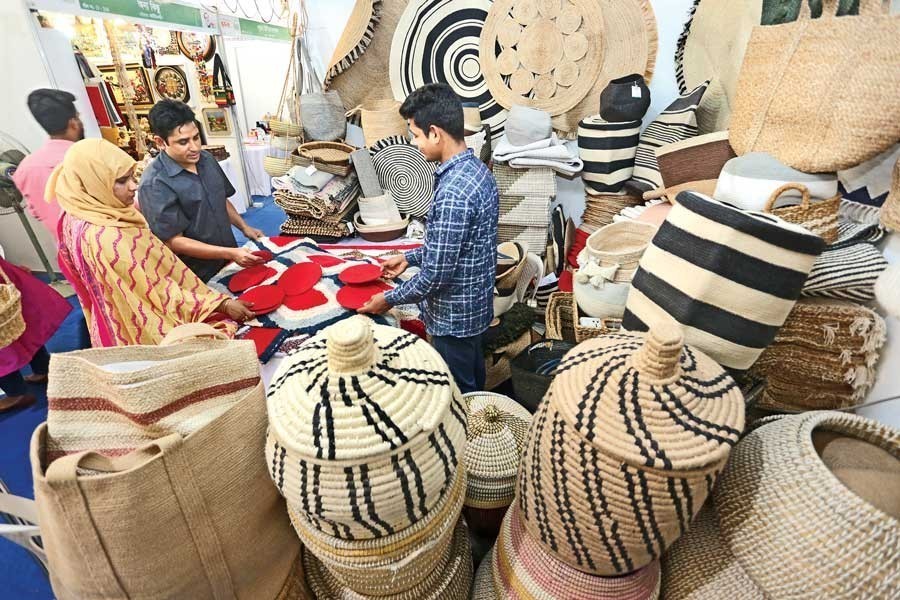The small and medium enterprises (SMEs) that mainly supply accessories and supporting goods to the large manufacturers are struggling to survive allegedly due to high advance taxes like the TDS (Tax Deducted at Source).
This type of tax has made them uncompetitive and diverted their business to the large conglomerates operating in the country, including the multinational companies (MNCs), sector insiders said.
The SMEs are considered to be one of the main employment generating sectors of the country.
Following reinstatement of the TDS in 2019 after a pause of only two years, the sector insiders alleged the large companies have started making the backward linkage products on their own.
If they make such goods in their own factories, they do not have to pay the 7.0 per cent TDS, they explained, claiming that now their survival is at stake due to the 'irrational tax measures".
While talking to the FE, they expressed the fear that such small enterprises would collapse soon while the remaining ones would have to struggle severely for their existence unless such advance taxes are withdrawn immediately.
The industries, known as business-to-business (B2B), used to supply bottles, packets, containers and other rigid plastic packages for domestic supply of consumer goods by both multinational and local companies producing numerous goods including medicines, edible oils, shampoos, soaps, detergents etc.
Syed Nasir, Managing Director of Xclusive Can limited, a tin and can manufacturing company, said their industries are in dire straits as tax is imposed in a way that they have to earn 23 per cent net profit for existence.
Shamim Ahmed, President of Bangladesh Plastic Goods Manufacturers and Exporters Association, said the plastic industries are paying taxes at different stages like import, supply, etc. and they are gradually becoming sick.
"We do not gain such high profit that we can adjust advance tax. It is difficult to run such industries unless the tax issues are settled," he said.
Mr Nasir said the domestic SMEs sector grow and survive on supplying accessories and supporting goods to the large industries, but imposition of irrational Tax Deducted at Source (TDS) has made it impossible to survive in the recent days.
Those local manufacturers are usually the vendors of the large industries and big conglomerates, he added
After imposition of 5.0 per cent AIT and 7.0 per cent TDS on supplying such products, the sufferings of these vendors began. The MNCs and other big companies have started manufacturing such packaging items to save the tax, he added.
Most of the large industries have stopped procuring such products from the SMEs to save 7.0 per cent TDS, said A. S. M Kamal Uddin, MD of Luna plastic.
Many companies have established their own production facilities diverting their capital and concentration from their basic products, he added. Such a trend is killing the local SMEs sector, he added.
Manufacturing all components of a finished product by a large company is not possible anywhere in the world, Mr Kamal added.
"We have already lost customers such as Acme Laboratories, Square Pharmaceuticals, Square Toiletries, Kohinoor Chemical Industry, Opsonin Pharmaceuticals, Hamdard,
Rupchanda Soybean, and Teer Soybean, following the imposition of TDS. We are no more cost effective to our customers," he said.
Before calculating the net profit of a company, the government deducts 5.0 per cent AIT at import stage and 7.0 per cent TDS as supply stage.
Due to the excessive advance tax on a B2B company, customers like Meghna Group, TK Group, Marico and Berger started producing such products on their own, Mr Nasir said.
The large companies do not need to deduct 7.0 per cent TDS if they themselves produce such secondary products, he said.
Considering the issue of B2B companies' survival, the National Board of Revenue (NBR) in 2017 exempted the businesses from deduction of the TDS for two years, reinstating it again in 2019.
"We are willing to pay 30 per cent corporate tax, but let us get rid of the TDS," Mr Nasir said.
Meanwhile, Niaz Ahmed, MD of Golden Oil Limited, in a recent letter to the NBR, demanded withdrawal of the TDS on the sale value of coconut oil after its production as its raw materials are fully import dependent.
He said the manufacturers are facing capital shortage as they are not able to adjust the TDS with actual payable tax like commercial importers.


